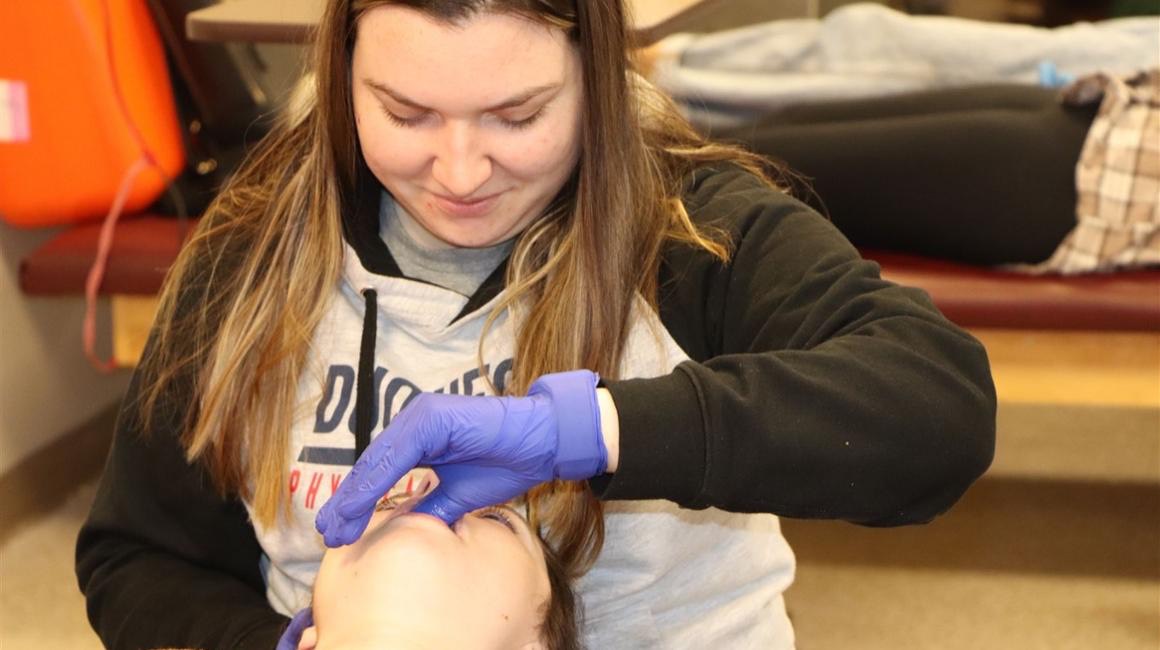The curriculum is three (3) years in duration. At the end of your third year, you will graduate with a Doctorate of Physical Therapy (DPT). The Rangos School of Health Sciences will review your application based on the following guidelines:
- Undergraduate degree from a four-year, degree-granting institution
- A GPA of 3.0 or higher on a 4.0 scale
- GRE testing is optional. If submitted, recommended GRE score of 303 or higher. GRE scores must be from last 5 years.
- Pre-requisites Course work with a GPA of 3.0 or higher with no less than a "C" grade in all prerequisite courses which includes: Two courses with labs in Biology, Chemistry, and Physics; Three (3) credits in Introduction to Biostatistics/Statistics; Three (3) credits or more in Psychology. A two course sequence (six [6] credits) in Anatomy & Physiology with labs. All prerequisite courses must be taken at a four year, degree granting institution.
- Documentation of 100 hours of volunteer, paid or shadowing hours with a licensed PT. Volunteering/shadowing must be evenly divided between at least two different areas of physical therapy practice
- Three professional references (references will not be accepted from a family member, friend, or PTA)
If offered admission, the following will also be required:
- CPR certification (adult, infant, and child)
- Verification of all Pre-Clinical Health Requirements
- Physical Exam
- Verification of Health Insurance
Admission to the professional program as a graduate student is limited. Typically, we have between five and fifteen seats available for this pathway to admission. Consequently, for you to compete well for one of these seats you should probably have higher than the minimum criteria mentioned above. In particular, students who are competitive for these seats will have:
- GPA at 3.5 or higher
- GPA for prerequisite courses of 3.5 or higher
- GRE at 308 or higher. GRE scores must be from last 5 years.
Although space is limited for this admission pathway, we very much value our graduate students as an integral part of the class and strongly encourage qualified applicants to apply.
- To apply for graduate admission, please go to Physical Therapy Centralized Application Service.
- You must also complete a short, free Duquesne University supplemental application to be considered.
International Students
Effective 2022, the FSBPT will require international applicants that don't qualify for an exemption (see below) to have taken the TOEFL within 2 years of registering for the NPTE. Our requirements for applicants is the same. IELTS, DuoLingo or any other tests are not accepted.
Minimum Scores:
Reading - 22
Listening - 21
Writing - 22
Speaking - 24
Exemptions - FSBPT has adopted the same exemptions to its requirement that USCIS uses for healthcare workers applying for visas. This means that individuals who graduate from a college, university or professional training school located in Australia, Canada (except Quebec), Ireland, New Zealand, the United Kingdom or the United States do not need to provide additional proof of English language proficiency.
If your undergraduate and/or graduate degrees are from an institution located outside of the United States, you must use a transcript credential evaluation service to obtain a course-by-course report. The official reports must be sent directly to Duquesne University from the organization you order through and will qualify as official transcripts. Please review our Transcript Credential Evaluation Directions.


